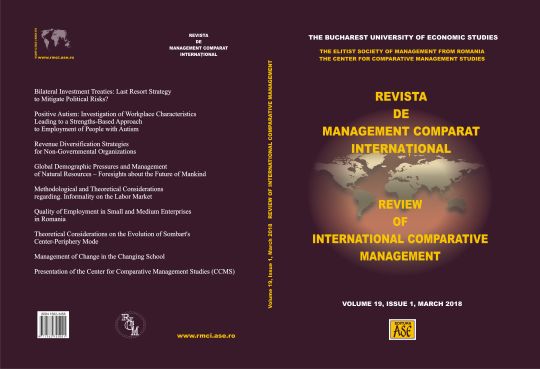Positive Autism: Investigation of Workplace Characteristics Leading to a Strengths-Based Approach to Employment of People with Autism
Positive Autism: Investigation of Workplace Characteristics Leading to a Strengths-Based Approach to Employment of People with Autism
Author(s): Michelle Donelly, Peter S. Wong, Philip A. Neck, Bill BoydSubject(s): Business Economy / Management, Micro-Economics, Human Rights and Humanitarian Law, Organizational Psychology, Health and medicine and law, Family and social welfare, Human Resources in Economy
Published by: EDITURA ASE
Keywords: positive autism; strengths-based; employment; Drucker; knowledge-worker productivity; entrepreneurship; human rights; social well-being;
Summary/Abstract: United Nations declares that employment is a basic human right. Numerous public policies reference the devastating impact of unemployment on health and social inclusion and seek to promote the economic participation of people with disabilities. Some researchers reckon high levels of economic marginalisation are experienced by people with a disability in Australia, in comparison with other OECD countries. In the literature, 80% unemployment rates are reported among working-age people with autism spectrum disorder (ASD). This is a critical area of concern that is currently under-researched and poorly addressed. “ASD-ness” (ASD behavioural characteristics) can be regarded as personal differences rather than disorders. Acknowledged experts such as Drucker and Cliffton & Harter argue that individuals gain more when they build on their talents rather than focusing on improving weaknesses. The authors, therefore, take an ASD-ness-strengths-based approach philosophy which, in a nutshell, regards ASD-ness as a source of employment strengths and autistic behavioural challenges as personal differences not deficits.
Journal: Revista de Management Comparat Internațional
- Issue Year: 19/2018
- Issue No: 1
- Page Range: 15-30
- Page Count: 16
- Language: English

